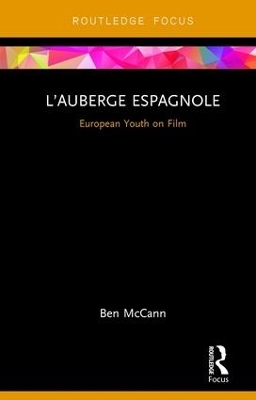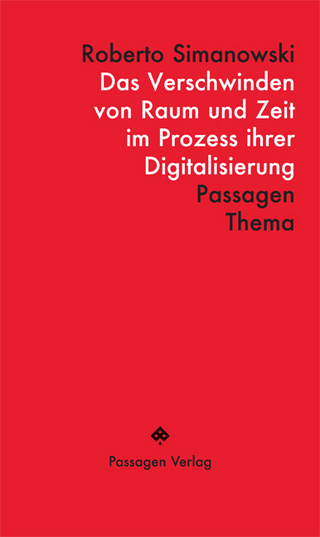
L’Auberge espagnole
European Youth on Film
Seiten
2018
Routledge (Verlag)
978-1-138-68122-4 (ISBN)
Routledge (Verlag)
978-1-138-68122-4 (ISBN)
L’Auberge Espagnole looks at one of contemporary French cinema’s most influential and innovative youth films. examines its themes of cultural diversity, celebrates its construction of a European transnational identity, analyzes its youthful visual and structural ‘newness’, and charts its production, distribution, and reception history.
Part romantic comedy, part sitcom, part social drama, L’Auberge espagnole (The Spanish Apartment) recounts a familiar ‘youth’ ritual – the move from university to ‘the real world’, the often complicated personal, romantic and cultural encounters that ensue, and the moral uncertainties that characterize that key biological and physiological developmental stage between adolescence and adulthood. French director Cédric Klapisch showcases the extraordinary colour and beauty of Barcelona’s architecture, and places his hero Xavier at the heart of this smartly written film, which makes a series of wry observations on educational exchange programmes, multi-culturalism, and the direction European youth might take in the twenty-first century.
This book addresses the topic of Europe’s youth generation, paying particular attention to the ways in which the film depicts the transition from adolescence to adulthood as allegory for the experiences of European society as it moves through periods of readjustment towards uncertain futures. It also looks into the ecosystem of contemporary French cinema, the Erasmus programme and its influence on youth experience, and identity politics in relation to ‘nationhood’ and ‘European-ness’. The book also examines the two sequels to the film – Russian Dolls (2005) and Chinese Puzzle (2013) – and how the complications faced by the main characters across the trilogy suggest that the move to adulthood is a never-ending process of growing up and reaching a level of self-actualization.
Part romantic comedy, part sitcom, part social drama, L’Auberge espagnole (The Spanish Apartment) recounts a familiar ‘youth’ ritual – the move from university to ‘the real world’, the often complicated personal, romantic and cultural encounters that ensue, and the moral uncertainties that characterize that key biological and physiological developmental stage between adolescence and adulthood. French director Cédric Klapisch showcases the extraordinary colour and beauty of Barcelona’s architecture, and places his hero Xavier at the heart of this smartly written film, which makes a series of wry observations on educational exchange programmes, multi-culturalism, and the direction European youth might take in the twenty-first century.
This book addresses the topic of Europe’s youth generation, paying particular attention to the ways in which the film depicts the transition from adolescence to adulthood as allegory for the experiences of European society as it moves through periods of readjustment towards uncertain futures. It also looks into the ecosystem of contemporary French cinema, the Erasmus programme and its influence on youth experience, and identity politics in relation to ‘nationhood’ and ‘European-ness’. The book also examines the two sequels to the film – Russian Dolls (2005) and Chinese Puzzle (2013) – and how the complications faced by the main characters across the trilogy suggest that the move to adulthood is a never-ending process of growing up and reaching a level of self-actualization.
Ben McCann is Associate Professor of French Studies at the University of Adelaide. He is the co-editor of Michael Haneke: Europe Utopia (Columbia UP, 2011) and Framing French Culture (Adelaide UP, 2015) and the author of Ripping Open the Set: French Film Design, 1930-1939 (Peter Lang, 2013), Le Jour se lève (I.B. Tauris, 2013), and Julien Duvivier (Manchester UP, 2017).
Introduction: it’s always sunny in Barcelona 1. The European youth film 2. The Spanish Apartment: development, production, reception 3. Bildungsroman in Barcelona: reading The Spanish Apartment 4. Russian Dolls and Chinese Puzzles: revisiting The Spanish Apartment Conclusion: ‘Life is for the living. And love is for the giving’
| Erscheinungsdatum | 15.07.2017 |
|---|---|
| Reihe/Serie | Cinema and Youth Cultures |
| Zusatzinfo | 1 Tables, black and white |
| Verlagsort | London |
| Sprache | englisch |
| Maße | 138 x 216 mm |
| Gewicht | 312 g |
| Themenwelt | Kunst / Musik / Theater ► Film / TV |
| Geisteswissenschaften ► Geschichte | |
| Sozialwissenschaften ► Kommunikation / Medien ► Medienwissenschaft | |
| Sozialwissenschaften ► Soziologie | |
| ISBN-10 | 1-138-68122-9 / 1138681229 |
| ISBN-13 | 978-1-138-68122-4 / 9781138681224 |
| Zustand | Neuware |
| Informationen gemäß Produktsicherheitsverordnung (GPSR) | |
| Haben Sie eine Frage zum Produkt? |
Mehr entdecken
aus dem Bereich
aus dem Bereich
Eine Einführung
Buch | Softcover (2022)
Springer VS (Verlag)
CHF 46,15
wie KI und virtuelle Welten von uns Besitz ergreifen – und die …
Buch | Hardcover (2023)
Heyne (Verlag)
CHF 29,90
Buch | Softcover (2023)
Passagen (Verlag)
CHF 25,20


